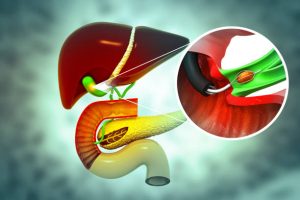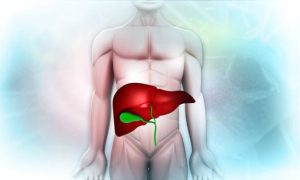
Aphthous ulcer, canker sore or stress ulcer in the mouth of Asian male patient.
What are Canker Sores?
Canker sores, also known as aphthous ulcers, are small, shallow lesions that develop on the soft tissues inside the mouth or at the base of the gums. Unlike cold sores, they do not appear on the lips and are not contagious. They can be painful and may make eating, drinking, or talking uncomfortable.
Types of Canker Sores:
- Minor Canker Sores: Small, oval-shaped ulcers that are typically less than 1 cm in diameter. They heal without scarring in 1 to 2 weeks.
- Major Canker Sores: Larger ulcers with irregular edges that can be more than 1 cm in diameter. These can be more painful and may take several weeks to heal, sometimes leaving a scar.
- Herpetiform Canker Sores: Multiple tiny sores that occur in clusters, resembling herpes sores, but they are not caused by the herpes virus. They usually heal within 1 to 2 weeks.
Main Causes of Canker Sores:
- Injury to the Mouth: Biting the inside of the cheek, brushing too hard, or having ill-fitting dental appliances.
- Nutritional Deficiencies: Lack of vitamins, particularly B12, folate, zinc, or iron.
- Hormonal Changes: Many women experience canker sores during menstruation or pregnancy.
- Food Sensitivities: Acidic, spicy, or salty foods like citrus fruits, tomatoes, and chocolates can trigger sores.
- Stress or Emotional Factors: Stress and anxiety are known triggers for canker sores.
- Immune System Issues: Conditions like celiac disease or inflammatory bowel diseases (IBD) can cause canker sores.
- Allergic Reactions: Sensitivity to certain oral hygiene products like toothpaste containing sodium lauryl sulfate (SLS).
- Underlying Health Conditions: Conditions like HIV, Behcet’s disease, and other autoimmune disorders can increase the likelihood of canker sores.
Signs and Symptoms of Canker Sores:
- Painful sores: Typically round or oval with a white or yellow center and a red border.
- Burning or tingling sensation: Often felt before the sores appear.
- Discomfort: Eating, drinking, or speaking may become uncomfortable due to the sores.
- Swollen Lymph Nodes: In severe cases, canker sores may cause swelling of the lymph nodes.
Risk Factors for Canker Sores:
- A family history of canker sores.
- Being female, as hormonal changes can increase susceptibility.
- Having a weakened immune system.
- Emotional stress and fatigue.
- Allergies to food or oral care products.
- Smoking or using tobacco products.
How to Prevent Canker Sores:
- Avoid Irritating Foods: Limit consumption of spicy, acidic, and rough-textured foods.
- Maintain Good Oral Hygiene: Brush and floss regularly but avoid using oral care products with sodium lauryl sulfate (SLS).
- Manage Stress: Practice relaxation techniques like yoga, meditation, or deep breathing.
- Nutritional Supplements: Take vitamins or supplements, particularly B12, folate, zinc, and iron, if you have a deficiency.
- Stay Hydrated: Dehydration can contribute to mouth dryness, increasing the risk of sores.
- Protect Your Mouth: If you wear braces or dentures, ask your dentist for protective waxes to cover sharp edges.
How Canker Sores Are Diagnosed:
- Clinical Examination: A dentist or doctor can usually diagnose canker sores through a physical examination.
- Blood Tests: May be conducted to check for nutritional deficiencies or underlying medical conditions.
- Biopsy: In rare cases, a biopsy may be taken if the sores are severe, recurrent, or not responding to treatment.
How to Treat Canker Sores:
- Over-the-counter (OTC) Medications: Products like topical gels or mouthwashes containing benzocaine, hydrogen peroxide, or fluocinonide can provide pain relief and promote healing.
- Prescription Medications: Severe cases may require corticosteroids or other immune-modulating drugs.
- Mouth Rinses: Medicated mouth rinses containing ingredients like dexamethasone or lidocaine can help reduce pain and inflammation.
- Nutritional Supplements: Addressing deficiencies in vitamins and minerals, particularly B12, folic acid, and zinc, may help prevent future outbreaks.
- Laser Therapy: Some dental offices offer laser treatments to reduce pain and promote faster healing.
Home Remedies for Canker Sores:
- Saltwater Rinse: Dissolve 1 teaspoon of salt in a cup of warm water and rinse your mouth to help reduce inflammation and promote healing.
- Baking Soda Rinse: Mix baking soda with water and use it to neutralize acids in the mouth, reducing irritation.
- Honey: Apply raw honey to the sore several times a day. It has antimicrobial and healing properties.
- Coconut Oil: Its anti-inflammatory and antimicrobial properties may help reduce pain and promote healing.
- Aloe Vera Gel: Apply directly to the sore to soothe pain and speed up healing.
- Ice Chips: Suck on ice chips to numb the pain and reduce swelling.
Ayurvedic Medicine to Cure Canker Sores:
- Triphala: Known for its anti-inflammatory and wound-healing properties. It can be used as a rinse or taken orally.
- Licorice Root (Yashtimadhu): Has soothing properties and can be used as a mouthwash or applied directly to the sore.
- Honey: Ayurveda often recommends honey for its healing and antimicrobial properties.
- Manjistha (Rubia cordifolia): Helps purify the blood and promotes healing of ulcers.
- Aloe Vera: Widely used in Ayurveda to cool and heal oral ulcers.
- Turmeric: Known for its anti-inflammatory and antiseptic properties, turmeric can be applied as a paste mixed with water.
Precautions:
- Avoid consuming acidic and spicy foods when you have canker sores.
- Keep your mouth clean to prevent secondary infections.
- Do not pick at or try to remove canker sores as it can delay healing.
- Visit a doctor if the sores persist for more than two weeks or are unusually large or painful.
Self-Care Tips:
- Use a soft-bristled toothbrush to avoid irritating the sores.
- Avoid mouthwashes containing alcohol, which can irritate canker sores.
- Use a straw when drinking beverages to reduce contact with sores.
- Rest and stay hydrated to support your body’s healing process.
Conclusion:
Canker sores are common but can be painful and inconvenient. While they usually heal on their own, treating underlying causes like nutritional deficiencies or stress can help reduce their frequency. A combination of good oral hygiene, proper diet, and stress management can go a long way in preventing and managing canker sores.
Disclaimer:
The information provided here is for educational purposes only and should not replace professional medical advice. Consult a healthcare provider for proper diagnosis and treatment.
Additional Tips:
- Try to chew food carefully to avoid biting your cheek or tongue, which can lead to canker sores.
- If you experience frequent canker sores, consider keeping a food diary to identify possible triggers.
- Consider using toothpaste designed for sensitive mouths, free of harsh chemicals like sodium lauryl sulfate (SLS).








